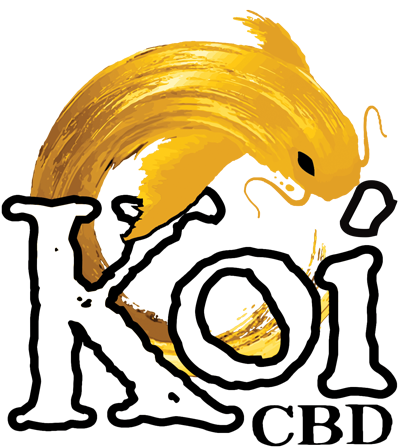One of the first questions most people ask about CBD is whether it's legal in the UK. Although CBD is legal, not all CBD products are. CBD growers, manufacturers and retailers have to follow strict regulations for the CBD products to be considered legal in the UK and the larger EU economic block. In this blog, we take a look at the different CBD oil laws in the UK and the various stakeholders they affect.
CBD UK Laws for Hemp Growers
The legality of CBD starts with the growth of the hemp plant. CBD laws in the UK require that industrial hemp growers obtain a license from the Home Office. This license covers the cultivation and possession of cannabis, and only low-THC cannabis plants like hemp can be grown. The licenses last for three years and expire on the 31st of December in the applicable year. During application, the growers are required to define the commercial end-use for their crops. Part of the responsibility of obtaining the license is lawfully destroying the leaves, flowers and other parts of the plants that are controlled.General CBD Oil and Hemp Requirements
The UK and EU governments have imposed restrictions on CBD products to make sure they comply fully with the set laws. In order to be legal in the UK, CBD oil or any other CBD product needs to be meet certain requirements:- It needs to be produced using an EU-approved industrial hemp strain. CBD products that are not made from any of the 63 approved hemp strains may not comply with the law and could be illegal.
- The product should contain a maximum of 0.2% of THC. This amount of THC is small enough not to cause the user the feel high.
- Product marketing should comply with the regulations set by the MHRA. The regulations dictate how CBD products should be marketed depending on the classification they are sold under, including following guidelines on making medical claims about the products.
UK Laws for CBD Products
Once the CBD products have been manufactured, there are laws that define how the products should be handled, packaged and sold. These laws determine whether the CBD product is legal to sell. Usually, the quantity of controlled substances like THC and other cannabinoids determines whether the products are legal to sell in the UK. The controlled cannabinoids are covered in the Misuse of Drugs Act 1971. The products highlighted in this act are unlawful to supply or poses unless the product in question is considered an exempt product. There's a criteria set for products to be considered exempt from control:- The product cannot be used to extract the controlled substance.
- The product is not designed to administer the controlled substance.
- The product should contain no more than 1mg of the controlled substance per container. In the case of CBD, that means that the CBD products should not have more than 1mg of THC per container. That means no matter how big or small the container is, it shouldn't have more than 1mg of THC. This same law applies to other controlled cannabinoids.
CBD as a Novel Food
The European Commission defines a novel food as a food that had not been consumed to a significant degree by humans in the EU before 15th May 1997 when the first regulation on novel foods came into force. Authorities in the EU member states regard supplements, drinks and foods with CBD as novel foods. One of the regulations of selling novel foods is a pre-market authorisation, which means the CBD manufacturer or retailers have to apply to the European Commission through an online application. Some of the CBD products that are considered novel foods include:- CBD oils, oral sprays and capsules.
- CBD gummies, sweets and mints.
- CBD infused tea, beer, and soft drinks.
- CBD snacks like energy bars, CBD chocolates and CBD cookies.
CBD As a Food Supplement
Most CBD products are sold as a food supplement because they cannot claim any medical benefits. Under this classification, supplements are foods that are considered to have concentrated sources of nutrients. As expected, the EU has safe limits and guidelines on the presentation, labelling and advertising of food supplements. It's important to note that CBD products were recently added to the novel foods list of the EU. As such, most companies are in the process of completing a pre-market safety assessment before they can legally market in the EU. In the meantime, CBD products continue to be sold as food supplements.When Was CBD Oil Made Legal in the UK?
The journey to legalising CBD has been a long and tedious one. Most recently, in 2016, the Medical Healthcare products Regulatory Agency (MHRA) stated that products containing cannabidiol could be classified as medicine if used for medicinal purposes. However, for such products to be sold, advertised and supplied as medicines, a license is required, which is an expensive and thorough undertaking. The products must meet the required quality, safety and efficacy standards. For CBD retailers selling CBD as a food or nutritional supplement don’t require a license. But they need to ensure their products are manufactured as per the requirements of UK law. A Timeline of UK Cannabis Laws- 1928: Dangerous Drugs Act – The first laws on the possession of cannabis were introduced in Britain.
- 1967: Drugs (Prevention of Misuse) Act – This act made recommendations to reduce the penalties for possession of cannabis.
- 1971: The Misuse of Drugs Act – A restriction was placed on the cultivation of all species of the cannabis plant.
- 2001: The Misuse of Drugs Regulations – The new laws permitted the cultivation of cannabis using a special license that was issued by the Home office. The smoking of cannabis for research purposes was also permitted.
- 2015: The Misuse of Drugs (Designation) – This new law paved the way for the first medical marijuana drug Sativex in the UK under prescription.




